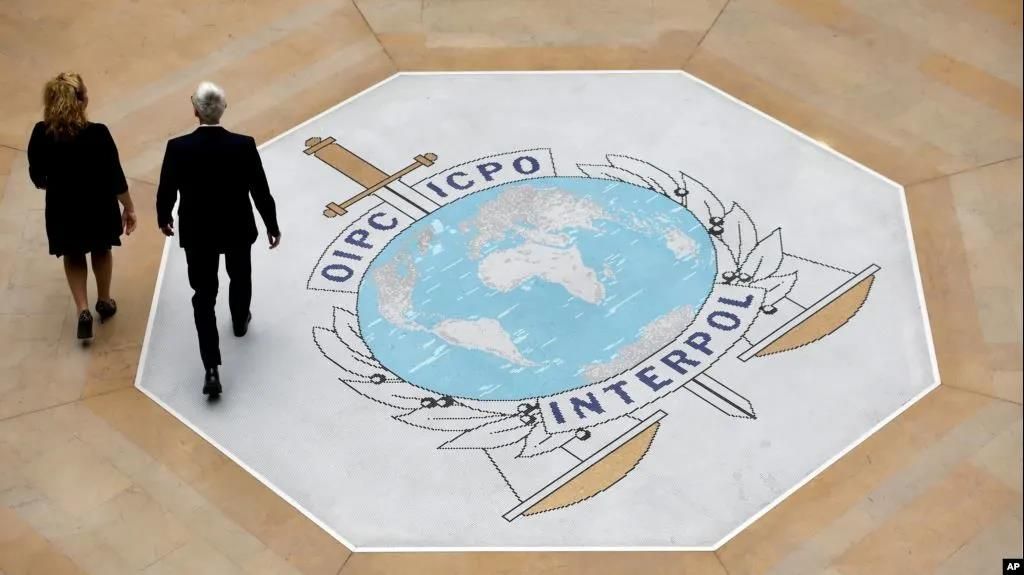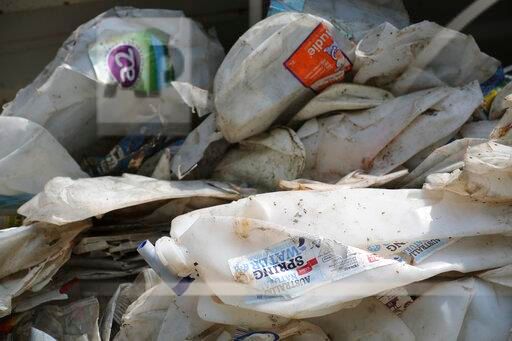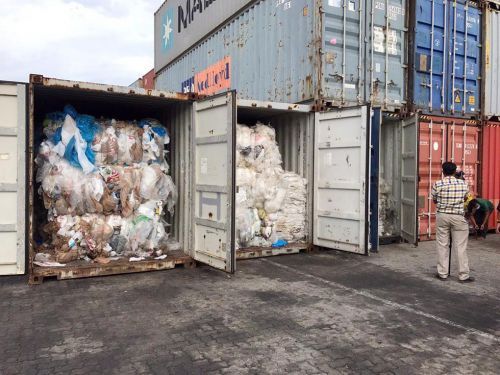The crime behind the global plastic waste recycling industry
Source: France 24
Date: August 27, 2020
Compilation: Global Monitoring

Recently, Interpol released a report saying that criminal groups are profiting from soaring plastic waste. The latter ship plastic waste from rich countries to Asia under the guise of recycling, but in fact incinerates and dumps it, adding to local environmental pollution.
According to Interpol, plastic consumption has exploded over the past decade, with wealthier countries generating around 360 million tonnes of plastic waste in 2018 alone.
It is estimated that at least 8 million tons of plastic end up in the ocean every year.
Some countries have set recycling targets, such as Europe requiring recycling rates to be increased to more than 30%. According to reports, the high targets have spawned a lucrative second-hand plastics market - which is expected to be worth $50.36 billion in 2022.
This has spurred unscrupulous operators to profit in this difficult-to-regulate industry. Interpol says there is an "urgent" need to figure out how criminals exploit regulatory loopholes.
Interpol is an intergovernmental crime-fighting agency headquartered in France. Organised crime networks are using legitimate pollution abatement operations as a cover for illegal operations, the agency said, behind environmental damage and even murder.
"Global plastic pollution is the most prevalent environmental threat on the planet today, and plastic pollution is properly regulated and managed," Calum MacDonald, head of the Advisory Committee of Interpol's Environmental Compliance and Enforcement Committee, said in a statement. vital to global environmental security.”
"Fake" recovery rate
The report, which gathered information from 40 countries, said many recycling targets could not be verified because of the "lack of transparency" in the system, making it impossible to determine whether plastic waste is actually being recycled.
The situation is particularly worrying for countries that are unable to handle even their own domestic waste and struggle to enforce regulations.
Interpol said some major plastic waste importing countries have high rates of poor waste management, including India (87%), Indonesia (83%) and Malaysia (57%).
"These figures suggest that the high recycling rates of plastic waste in exporting countries may be falsified, and there is still considerable uncertainty about how plastic waste shipped overseas is actually handled," the report said.
In early 2018, China tightened restrictions on the import of waste plastics, and designated household and supermarket plastic waste from Europe, North America and other places as waste that was transported illegally. This has led to a surge in plastic waste destined for South and Southeast Asian countries.
As China's second-hand plastic market shrinks, companies are shifting their recycling operations to neighboring countries, the report said. Previously, China almost disposes of more than half of the world's plastic waste. Facts have proved that the export diversion of huge amounts of waste has "overwhelmed" some countries.

The world's "garbage dump"
The above has stimulated the development of illegal waste disposal industries in emerging destination countries, with a marked increase in the amount of plastic waste diverted to unlicensed recycling facilities.
The small town of Jenjarom, not far from Kuala Lumpur, Malaysia, is an example. In 2018, a large number of plastic processing factories suddenly appeared here, huge amounts of waste were piled up for incineration in the open, and the air was filled with harmful gases.
Several Southeast Asian countries are trying to resist the onslaught of this international garbage. But Interpol said efforts to repatriate waste remained "long and challenging" and that cargo could end up in ports for months or even years.
Earlier this year, Malaysia sent dozens of containers of plastic waste back to the countries of origin - mostly wealthier countries - with a statement that it would not become the world's "garbage dump".

Interpol mentioned that the current challenge is to identify the source of plastic waste, as criminal networks redirect illegal shipments and use transit countries to disguise its origin.
Interpol has warned that even as some countries tighten restrictions, merchants are still diverting goods to "new and poorly regulated countries" - with illegal plastic waste already found in Laos and Myanmar.
plastic planet
These illegal activities are not limited to Asia.
Interpol has found that organised crime groups are operating in parts of Europe. It warned that crime related to the waste was becoming "more sophisticated and more threatening".
The mayor of the French town of Signes was murdered in August 2019 for preventing illegal dumping of waste.
Even if regulations are to be tightened from 2021, there is still a need for greater international cooperation to curb crime in the industry, the report said.
Commenting on the study, WWF International called for "systematic changes and stronger accountability" in the way plastic waste is used and disposed of.
Eirik Lindebjerg, head of global plastics policy at WWF International, said: “Waste crime is a growing threat rooted in a more fundamental problem: our inability to manage the use of plastics and produce."
Like my work? Don't forget to support and clap, let me know that you are with me on the road of creation. Keep this enthusiasm together!

- Author
- More